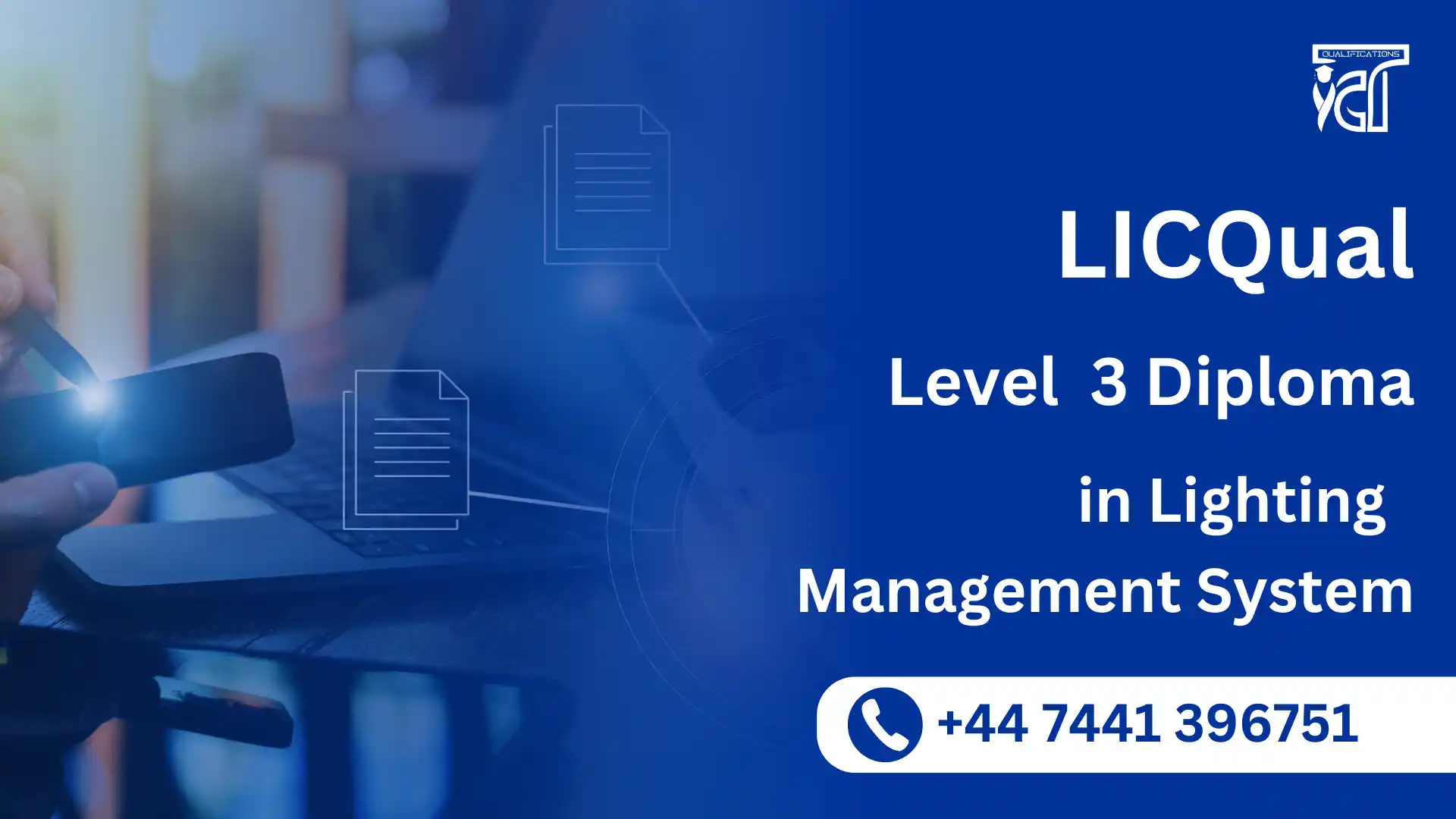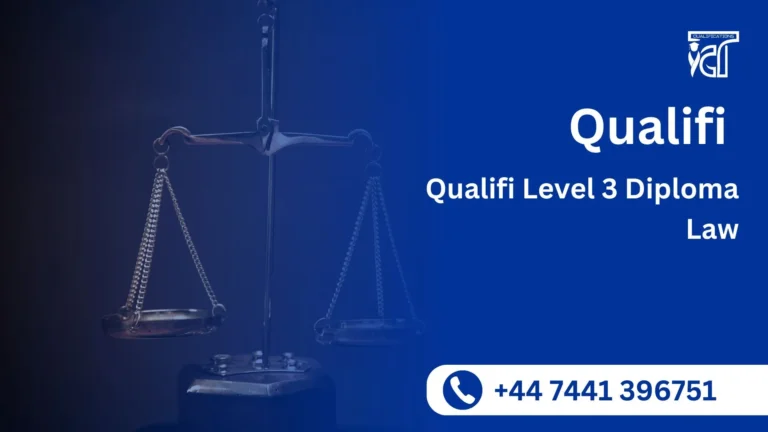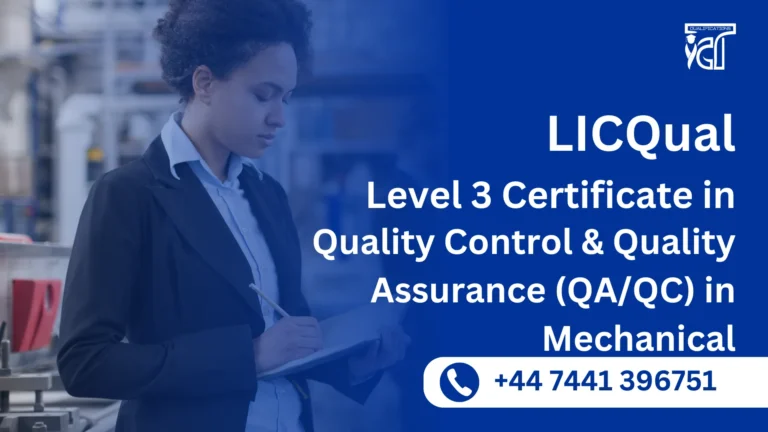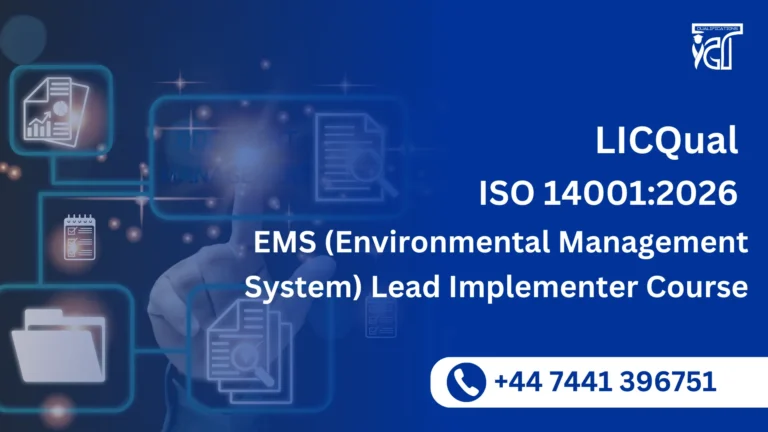The LICQual Level 3 Diploma in Lighting Management System is a UK-based, professionally recognized qualification designed for individuals seeking to develop expertise in modern lighting technologies and systems. This diploma equips learners with the practical skills and theoretical knowledge necessary to design, operate, and maintain efficient lighting systems across residential, commercial, and industrial environments. Ideal for lighting technicians, facilities managers, and maintenance professionals, the course prepares participants to optimize lighting performance, reduce energy consumption, and ensure compliance with safety and regulatory standards.
The course provides a comprehensive understanding of key components of lighting management systems, including LED and smart lighting technologies, automated control systems, energy monitoring, and environmental considerations. Learners will gain hands-on experience in operating, troubleshooting, and maintaining lighting systems to enhance efficiency and operational reliability. The curriculum also covers essential aspects of energy conservation, sustainability, and health and safety, ensuring that graduates are fully prepared to meet industry standards and best practices.
The assignment-based structure of the LICQual Level 3 Diploma allows learners to apply theoretical knowledge to real-world lighting scenarios, promoting practical skills development and problem-solving capabilities. Participants will learn to assess lighting performance, implement corrective measures, and optimize systems for energy efficiency and occupant comfort. By combining technical knowledge with practical application, the course ensures learners are ready to take on key roles in lighting management and operations.
Graduates of the LICQual Level 3 Diploma in Lighting Management System are well-positioned for career advancement as lighting system operators, facilities coordinators, or technical supervisors. The qualification enhances employability, demonstrates professional competence, and provides a strong foundation for further studies in building services or energy management. Enroll in the LICQual Level 3 Diploma in Lighting Management System to gain the skills, confidence, and expertise needed to manage modern lighting systems effectively and sustainably.
LICQual Level 3 Diploma in Lighting Management System
The Study Units of LICQual Level 3 Diploma in Lighting Management System are as :
| Unit Ref# | Unit Title | G-L-H | GLH |
| LICQ2200025-1 | Fundamentals of Lighting Design | 10 | 40 |
| LICQ2200025-2 | Advanced Lighting Technologies | 10 | 40 |
| LICQ2200025-3 | Energy Efficiency and Sustainability in Lighting | 10 | 40 |
| LICQ2200025-4 | Lighting Control Systems and Automation | 10 | 40 |
| LICQ2200025-5 | Project Management for Lighting Installations | 10 | 40 |
| LICQ2200025-6 | Practical Applications and Case Studies | 10 | 40 |
GLH (Guided Learning Hours) and TQT (Total Qualification Time) are terms commonly used in vocational qualifications to help define the amount of time a learner is expected to spend on their studies.
1. GLH (Guided Learning Hours)
GLH refers to the number of hours a learner spends being directly taught, supervised, or supported during their course. This includes the time spent in activities such as:
- Classroom instruction
- Practical workshops
- One-on-one tutoring or mentoring sessions
- Online learning sessions with tutor support
In other words, GLH represents the time that learners are actively engaged with their instructors or learning activities.
2. TQT (Total Qualification Time)
TQT represents the total amount of time a learner is expected to invest in completing a qualification, including:
- GLH (Guided Learning Hours): Time spent on direct learning, as explained above.
- Self-Directed Learning: This includes time spent on independent study, research, assignment completion, preparation for exams, and any other work the learner does outside of direct teaching hours.
TQT is a broader measure that includes all the time required to achieve the qualification. It helps learners and employers understand the overall commitment required for the qualification.
Key Differences Between GLH and TQT:
- GLH focuses on direct learning with guidance or supervision.
- TQT includes GLH as well as independent study time and other learning-related activities.
Example:
If a qualification has a TQT of 600 hours and a GLH of 250 hours, it means the learner should spend 250 hours in direct learning (classroom, online, or tutor-led sessions) and 350 hours on independent study or research.
The LICQual Level 3 Diploma in Lighting Management System is designed to provide learners with advanced knowledge and practical skills required to design, operate, and manage modern lighting systems effectively. The course equips professionals with the technical expertise and strategic understanding needed to optimize lighting performance, improve energy efficiency, and implement sustainable solutions. Each study unit focuses on both theoretical foundations and practical applications, ensuring learners are prepared to handle real-world lighting challenges.
- Fundamentals of Lighting Design
This unit introduces learners to the principles and concepts of lighting design, including the impact of lighting on comfort, productivity, and aesthetics. Learning outcomes include understanding light properties, designing effective lighting layouts, and applying design principles to meet functional and visual requirements in various environments. - Advanced Lighting Technologies
Participants explore modern lighting technologies such as LED, smart lighting, and adaptive systems. Learning outcomes include evaluating advanced lighting solutions, selecting appropriate technologies for different applications, and implementing systems that enhance performance and longevity. - Energy Efficiency and Sustainability in Lighting
This unit emphasizes strategies to reduce energy consumption and promote environmentally sustainable lighting practices. Learning outcomes include analyzing energy usage, applying energy-saving techniques, and integrating sustainable solutions to minimize environmental impact. - Lighting Control Systems and Automation
Learners will gain expertise in automated lighting control systems and their applications in building management. Learning outcomes include configuring control systems, optimizing lighting operations, and implementing automation strategies to enhance efficiency and occupant comfort. - Project Management for Lighting Installations
This unit focuses on the planning, coordination, and management of lighting projects. Learning outcomes include developing project plans, managing resources and timelines, and ensuring successful installation and commissioning of lighting systems. - Practical Applications and Case Studies
Participants apply theoretical knowledge to real-world scenarios through hands-on projects and case studies. Learning outcomes include analyzing lighting challenges, proposing effective solutions, and demonstrating practical skills in lighting management and system optimization.
This structured curriculum ensures that learners graduate as skilled, knowledgeable, and competent professionals in modern lighting management systems.
The LICQual Level 3 Diploma in Lighting Management System is a professional qualification designed for individuals aiming to develop technical expertise and practical skills in managing modern lighting systems. This course equips learners with the knowledge and hands-on experience required to optimize lighting performance, improve energy efficiency, and implement sustainable lighting solutions. Completing this diploma enhances career prospects, demonstrates professional competence, and prepares learners for advanced roles in lighting management and building operations.
- Advanced Technical Knowledge in Lighting Systems
Learners gain a deep understanding of lighting technologies, design principles, and control systems. This expertise enables professionals to manage complex lighting installations, troubleshoot system issues, and ensure optimal performance across diverse environments. - Energy Efficiency and Sustainable Practices
The course emphasizes sustainable lighting solutions and energy-saving strategies. Graduates can implement eco-friendly practices, reduce energy consumption, and contribute to environmental sustainability in building management. - Career Advancement Opportunities
Completing the Level 3 diploma positions learners for roles such as Lighting System Operator, Facilities Coordinator, or Technical Supervisor. The qualification demonstrates high-level competence and enhances employability in the lighting and building management sectors. - Practical, Real-World Application
The assignment-based structure allows learners to apply theoretical knowledge to real-life scenarios. Participants develop problem-solving skills, conduct system evaluations, and implement effective solutions in lighting management projects. - Expertise in Automation and Control Systems
Graduates develop skills in lighting control and automation technologies. This knowledge enables them to optimize system performance, improve occupant comfort, and streamline operational efficiency. - Project Management and Implementation Skills
Learners acquire competencies in planning, managing, and executing lighting projects. They are equipped to coordinate resources, oversee installations, and ensure successful project completion while meeting industry standards.
This diploma ensures participants emerge as skilled, confident, and knowledgeable professionals capable of managing modern lighting systems effectively, efficiently, and sustainably.
The LICQual Level 3 Diploma in Lighting Management System is designed for individuals who want to build solid expertise in lighting technologies, energy efficiency, and system management. This course provides the ideal pathway for learners who are passionate about sustainable building practices and aspire to work in technical or supervisory roles in lighting and facilities management. The program caters to a wide range of professionals, from beginners to those already in the field, looking to upgrade their skills and qualifications.
- Aspiring Lighting Technicians
Ideal for individuals who want to begin a career in lighting management and gain hands-on technical knowledge of lighting systems, automation, and maintenance. - Facilities and Building Management Professionals
Perfect for facilities coordinators, supervisors, or managers who wish to strengthen their expertise in lighting system operations, energy efficiency, and sustainable practices. - Engineering and Technical Professionals
Suitable for engineers, electricians, and technical staff seeking to expand their knowledge of modern lighting technologies and automated control systems. - Sustainability Enthusiasts
A great choice for individuals passionate about green practices and energy conservation who want to apply sustainable lighting solutions in residential, commercial, or industrial settings. - Career Changers
Ideal for professionals from other fields who are looking to transition into the growing area of building services and lighting management with a recognized qualification.
By targeting learners from different professional and educational backgrounds, the LICQual Level 3 Diploma in Lighting Management System ensures that participants can develop the right blend of technical knowledge, problem-solving ability, and sustainability awareness to excel in the lighting and building management industry.
Entry Requirements
Register Now
Qualification Process
LICQual Level 3 Diploma in Lighting Management System
- Self-Assessment:
Begin by evaluating your eligibility to ensure you meet the qualification requirements, including work experience, knowledge, and language proficiency. - Registration:
Complete your registration by submitting the required documents, including a scanned copy of a valid ID, and paying the registration fee. - Induction:
An assessor will conduct an induction to confirm your eligibility for the course and explain the evidence requirements. If you do not meet the criteria, your registration will be canceled, and the fee will be refunded. - Assignmnets & Evidence Submission:
Provide all assignmnets and the necessary evidence based on the assessment criteria outlined in the course. If you are unsure of the required evidence, consult with the assessor for guidance on the type and nature of evidence needed. - Feedback and Revision:
The assessor will review your submitted evidence and provide feedback. Evidence that meets the criteria will be marked as “Criteria Met,” while any gaps will be identified. You will be asked to revise and resubmit if needed. - Competence Evidence:
Submit final evidence demonstrating that all learning outcomes have been met. This evidence will be marked as “Criteria Met” by the assessor once it is satisfactory. - Internal Quality Assurance (IQA):
The Internal Quality Assurance Verifier (IQA) will review your evidence to ensure consistency, quality, and compliance with standards. - External Verification:
The IQA will submit your portfolio to LICQual External Quality Assurance Verifiers (EQA) for final confirmation. The EQA may contact you directly to verify the authenticity of your evidence. - Certification:
Upon successful completion of all checks, LICQual will issue your official certificate, confirming that you have attained the LICQual Level 3 Diploma in Lighting Management System







